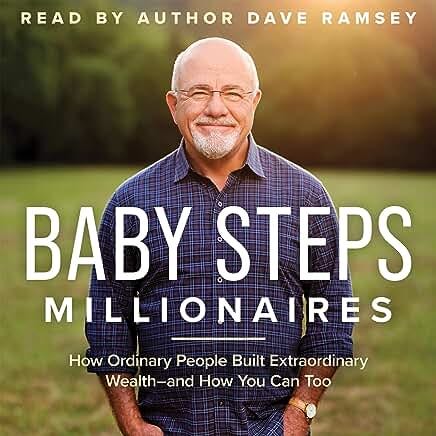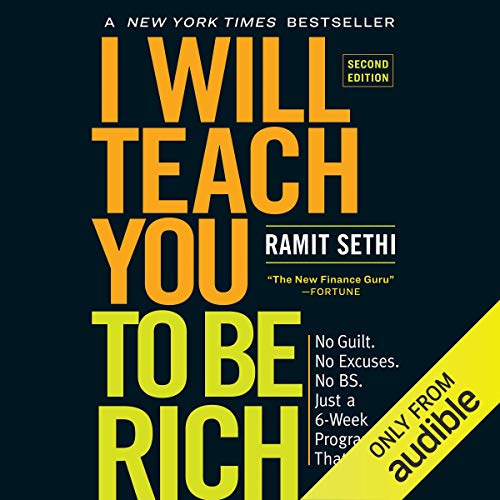When it comes to seeking financial advice on YouTube, the vast array of information can be overwhelming. If you're starting on a journey to improve your finances, you might be wondering, "Who should I listen to?" Drawing from my experience as an economics professor with years dedicated to financial literacy education, I've summarized the diverse perspectives of financial education into two distinct approaches. On one end, there's Dave Ramsey, and on the other, Ramit Sethi.
Today, we'll look into these two unique perspectives, helping you decide which path to follow. If financial freedom is your goal, you're in for an important discussion that you won't want to miss.
Diverse Financial Advice
Dave Ramsey and Ramit Sethi offer radically different financial advice and approaches. So, which one is the right choice for you? The answer is nuanced because both have their merits and drawbacks. To illustrate their distinctions, let's explore how they approach the decision to purchase a home.
Dave Ramsey Says
Dave Ramsey recognizes that for most Americans, their most significant asset is their home. He emphasizes that paying off your mortgage is a form of forced savings—a concept that many people find challenging to achieve. Here are his steps for buying a house and paying it off early:
1. Achieve debt-free status with a fully funded emergency fund.
2. Ensure you can comfortably manage monthly mortgage payments and home maintenance.
3. Have a substantial down payment.
4. Cover your closing costs.
5. Budget for moving expenses.
6. Plan to stay in the home for a significant duration.
7. Work with a trusted real estate agent.
When it comes to the amount of house to buy, Dave's philosophy revolves around his aversion to debt. He advocates for a 15-year mortgage and recommends limiting your housing payment to 25% of your take-home pay. This 25% encompasses principal, interest, property taxes, home insurance, private mortgage insurance (PMI), and homeowners association (HOA) fees.
In his list of seven baby steps towards financial freedom, paying off your mortgage is number six.
Ramit Sethi Says
While Dave Ramsey offers a structured approach, Ramit's advice is more adaptable. It calls for you to reflect on what you genuinely want. This flexibility can be a strength or a weakness, depending on your comfort level with money discussions, your research skills, and your confidence in managing personal finances.
For instance, when considering the purchase of a house, Ramit encourages you to question your motives. Is buying a house aligned with your true desires, or are you succumbing to societal pressures?
Ramit even goes so far as to argue against buying a house, advocating for renting instead. He contends that homeownership can limit your mobility and suggests that investing money in the stock market can yield better returns than the housing market.
However, one downside of Ramit's advice is its flexibility, which may be overwhelming for some.
Whom Should You Listen To?
In typical economist fashion, the answer is, "It depends!"
If you're in financial distress and struggling to make ends meet, Dave Ramsey is an excellent choice. Dave excels at helping people regain financial stability by simplifying decision-making.
On the other hand, if you're eager to explore the world of personal finance and compare various approaches, Ramit Sethi is the author to explore. Ramit's advice relies on your ability to assess costs and benefits and follow through on your own financial goals.
Remember, not all advice on social media is equal, and what's good for one person may not be suitable for you. Consider seeking guidance from a financial advisor or planner to tailor a strategy that aligns with your unique circumstances.
We want to hear from you?
I want to take a moment to express my heartfelt gratitude to each and every one of you for being a part of our Economics with Dr. A community. With +1,500 subscribers strong on Substack, and 9,477 on Youtube, we're on an incredible journey of exploring the fascinating world of economics together.
Your support means the world to us, and we're eager to hear from you. What do you love most about Economics with Dr. A? Your feedback is invaluable in helping us tailor our content to your interests and needs. Please take a moment to reply to this email and share your thoughts.
Additionally, if you've found value in our newsletter, we kindly ask you to spread the word among your friends and colleagues. Sharing knowledge is a powerful way to empower others, and we'd love to welcome more curious minds into our community.
Thank you once again for your support and encouragement. Let's continue to learn, grow, and explore the world of economics together!
Yours Truly,
Dr. A






Just saw this. Yes, advice online can be tough to sift through, but bits and pieces from both can truly help those looking for their path. I think Dave is great on consumer debt, not so much on asset debt (the assets must be cash flow positive). As Ramit mentions, asking the question of why is very important, especially in 2024 (or 2023) due to the changing nature of the market and economy. The principles are great for both and many others, but unfortunately, the application has changed so much that it can be tough for those who are looking to build wealth to decide what to do. Very good overview.
I’m debt-free because of Dave!